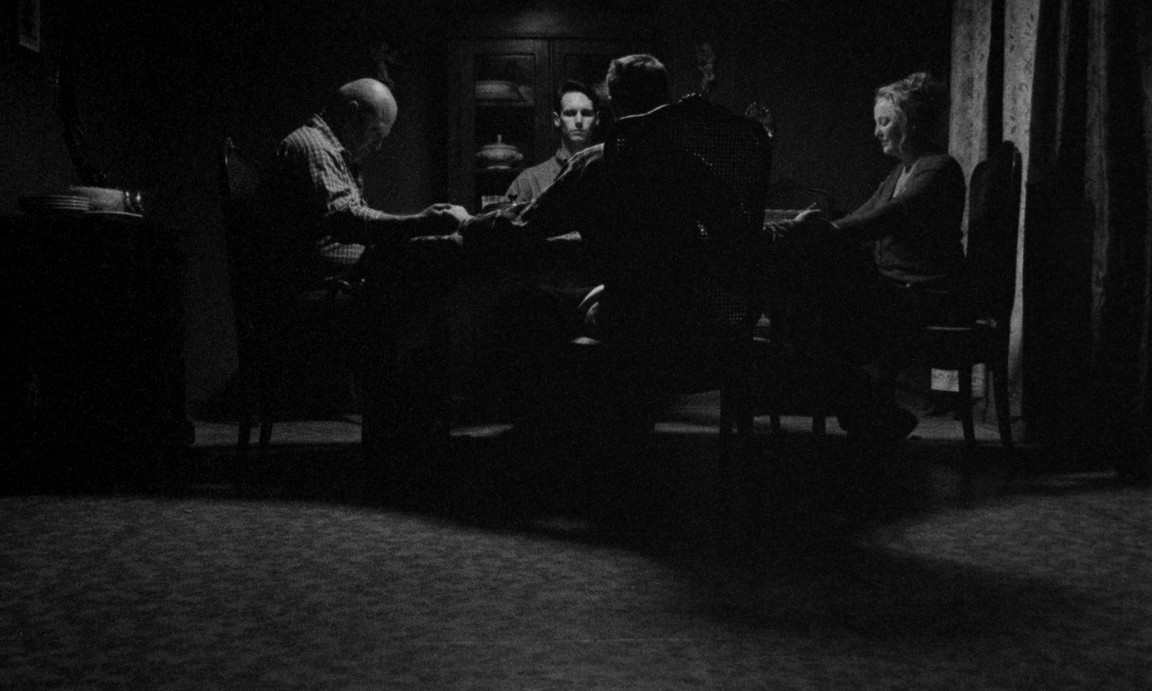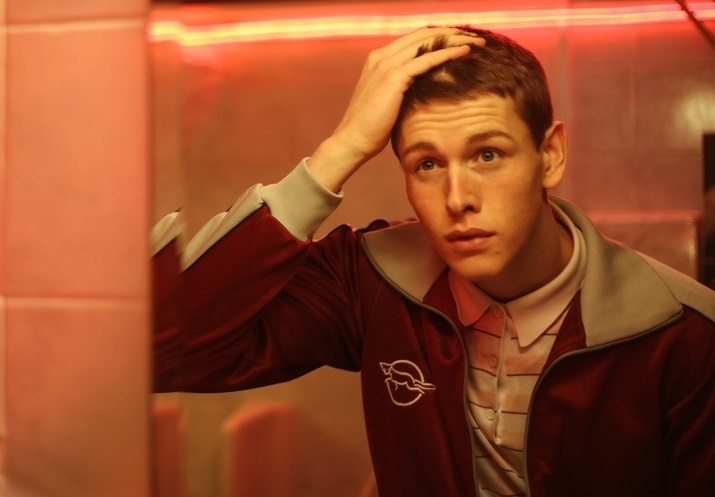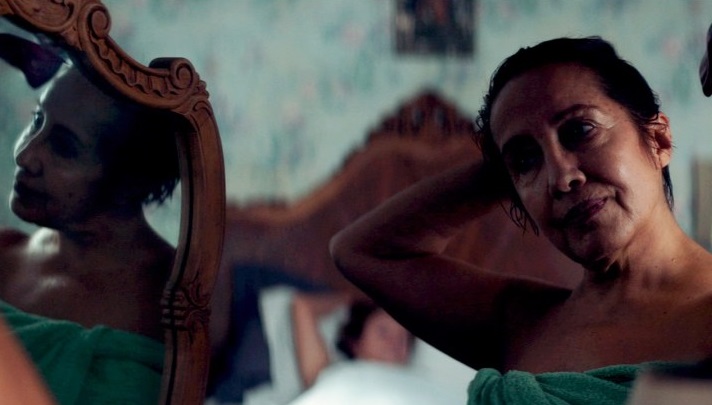Velvet Buzzsaw review - an acerbic takedown of the LA art scene
Director Alexandria Bombach: 'I feel like a completely different person'
Director of On Her Shoulders on filming Yazidi campaigner Nadia Murad
Nadia Murad caught the world’s attention when she spoke at the United Nations Security Council. She spoke of living under ISIS, daily assaults, escaping, and the current plight of the Yazidi people, in refugee camps and still under ISIS control. It was a heart-breaking plea for support to the world’s silent nations. But in a rapidly changing news landscape, it’s easy to stay silent and wait for the next story come to come along.
Mary Queen of Scots review - Saoirse Ronan and Margot Robbie excel
A worthy historical drama that sinks under its own weight
Very much a woman of today, the Catholic Stuart heroine (Saoirse Ronan) of Mary Queen of Scots frequently hacks her way out of a thicket of power-hungry males, enjoys it when her English suitor Lord Darnley (Jack Lowden) goes down on her, and is amused when her gay secretary and minstrel David Rizzio (Ismael Cruz Cordova) dresses as a woman while dancing with her gentlewomen in her private quarters.
VoD: 1985
Black-and-white style and emotional heft fuel restrained gay-themed family drama
Dallas writer-director Yen Tan has brought 1985 back to stylistic basics, and the resulting resolute lack of adornment enhances his film’s concentration on a story that achieves indisputably powerful, and notably reserved emotion. Independent cinema through and through, it’s economical in every sense and thrives on excellent all-round performances.
Tan’s drama of family relations, set at the moment when the impact of the HIV/AIDS epidemic was gradually becoming clear to Middle America, takes us back three decades, and there’s a similar feel to the visual style that he and his cinematographer (and producer) HutcH have chosen. They filmed in black-and-white Super 16, which seems to amplify contrasts, heightening darkness and often draining light – there’s a certain graininess, too – that surely consciously plays with the idea of home movies.
Secrets (and half-lies) are never quite what they seem here
Which is appropriate for this narrative, given that protagonist Adrian (Cory Michael Smith) is coming back to his Fort Worth, Texas home for Christmas after three years away in New York. He clearly took the first chance he had to get out of there and head for the big city, drawn by its freedoms of attitude and behaviour. The resulting separation has become much more than just geographic – even though it’s been a long absence, by any standards – and we sense that he’s moved on in every way from the suburban, Bible Belt world from which he started.
There’s certainly a tense distance with his father (Michael Chiklis), when he meets him at the airport, the older man’s down-to-earth quality a contrast to Adrian’s city style: he’s also clearly the stronger force for religion in the family, that security of belief an anchor in a life that, we learn later, included service in Vietnam. Mother Eileen (Virginia Madsen, giving a beautiful performance) compensates for any such paternal chill with an almost anxious affection, while younger brother Andrew (Aidan Langford), barely a teenager, clearly harbours resentment at how his elder sibling disappeared from his life. The only genuinely uncomplicated reunion awaiting Adrian is with the family’s big old German Shepherd.
The reticence here isn’t only because Adrian hasn’t come out to his parents, which makes for uneasy questions about his New York roommates, as well as a re-encounter with a past girlfriend (Jamie Chung) that reaches through the pain and awkwardness to achieve some welcome catharsis. There’s an anxiety about his health, too, with his mother’s concerns about how he’s lost weight, and the stomach flu that is wearing him down: Tan’s story certainly takes its time with its reveals, and his very chaste film gives a glimpse of Adrian's other world only in a brief final moment. But though a thread of tragedy spins itself through 1985, there’s also a lot of warmth, as well as some lovely humour, to balance that, and a sense that returning home to a world that you have left behind inevitably brings its incongruities. One scene has a high-school contemporary of Adrian’s apologising for how he’d treated him in the past: it’s both agonisingly awkward and redeemingly well-intentioned. This is certainly no return visit of accusation or a demand for recompense; instead there’s a strong sense of paradoxical love, heightened by a sense that it’s in all probability the last time.
But though a thread of tragedy spins itself through 1985, there’s also a lot of warmth, as well as some lovely humour, to balance that, and a sense that returning home to a world that you have left behind inevitably brings its incongruities. One scene has a high-school contemporary of Adrian’s apologising for how he’d treated him in the past: it’s both agonisingly awkward and redeemingly well-intentioned. This is certainly no return visit of accusation or a demand for recompense; instead there’s a strong sense of paradoxical love, heightened by a sense that it’s in all probability the last time.
The humour works particularly well within the family framework. A shared love of Madonna has Adrian rebonding with his brother, whose cassette collection has been purged on the instructions of the local pastor, as does his sense that the boy is growing up no less of an outsider than he has become himself. There’s a marvellous scene of bonding with his mother, which has her revealing her own dark secret – for these parts, at least: that she hadn’t voted for Reagan in the ‘84 elections. But secrets (and half-lies) are never quite what they seem here, something Tan hauntingly foregrounds in late revelations. They are all the more powerful for being made practically sotto voce, creating a sense of almost unbearablly fragile tenderness.
Tan developed 1985 from the short film of the same name that he made two years ago, which comes as an extra on the forthcoming DVD/Blu-ray dual format release, together with an audio commentary from the director Yen Tan and his DP HutcH.
Overleaf: watch the trailer for 1985
The Favourite review - scintillatingly warped portrait of the court of Queen Anne
Yorgos Lanthimos's mischievous analysis of royal deviousness and dysfunction
It can be fascinating to see ourselves as others see us. In this case, Athens-born director Yorgos Lanthimos (The Killing of a Sacred Deer, The Lobster) brings his acute eye to the English country-house period drama in a scintillatingly warped portrait of the dysfunctional court of Queen Anne.
DVD/Blu-ray: Postcards from London
Shades of Caravaggio and Francis Bacon beguile in Soho gay art history fantasy
Postcards from London is a surprise. You will certainly come away from Steve McLean’s highly stylised film with a new concept of what being an “art lover” can involve, while his subject matter is considerably more specialised, not least in the sexual sense, than its seemingly innocent title might suggest. Mischievously self-conscious in tone, its niche approach to certain established themes – principally gay culture and art history – leavens any pretension with generous humour.
Harris Dickinson plays Jim, an 18-year-old naif (pictured below) who leaves behind the restrictions of his Essex home life – defined equally by parental admonishments and unnaturally confining walls, it’s a literally enclosed world – for the bright lights of the city, Soho in particular. Where he quickly discovers, Whittington-like, that the streets are not paved with gold, though his striking good looks suggest career prospects lie in a familiar direction. But just as Postcards was shot in its entirety in studios rather than on the much-trodden grimy streets of the neighbourhood concerned – Annika Summerson’s cinematography fully relishes the lighting and colouring opportunities that such an approach allows – the experience that Jim comes to offer is rather more aesthetic than sexual. He becomes a member of high-class escort club The Raconteurs, which specialises in post-coital cultural conversation that involves a different kind of boning up to the usual one. The fact that he looks like a Caravaggio model makes history of art Jim’s natural field, and his beauty is soon conquering Soho, though somewhat parodically: the one encounter we witness involves some high-comedy, practically Carry On bathos, involving an elderly and portly CofE gent with a fixation on ancient history shooting rubber-tipped arrows at Jim, who’s modelling for St Sebastian (the real transgression is their smoking indoors). From that it’s a short skip to his becoming a muse for Max, a Soho artist of a definite vintage who’s a cross between Francis Bacon – for his sexuality; Bacon’s lover George Dyer is liberally referenced – and Lucian Freud, for the almost obsessive demands an artist can make on his sitters.
He becomes a member of high-class escort club The Raconteurs, which specialises in post-coital cultural conversation that involves a different kind of boning up to the usual one. The fact that he looks like a Caravaggio model makes history of art Jim’s natural field, and his beauty is soon conquering Soho, though somewhat parodically: the one encounter we witness involves some high-comedy, practically Carry On bathos, involving an elderly and portly CofE gent with a fixation on ancient history shooting rubber-tipped arrows at Jim, who’s modelling for St Sebastian (the real transgression is their smoking indoors). From that it’s a short skip to his becoming a muse for Max, a Soho artist of a definite vintage who’s a cross between Francis Bacon – for his sexuality; Bacon’s lover George Dyer is liberally referenced – and Lucian Freud, for the almost obsessive demands an artist can make on his sitters.
But Jim’s artistic affinities run still deeper: he’s so sensitive to a good painting that he falls into a swoon when he sees one, becoming literally caught up, via dream sequences, in its creation. That makes for some lovely behind-the-canvas scenes where he's modelling for Caravaggio (main picture), an experience of some risk given the world that painter inhabited; played by Ben Cura, he’s a fiery character, succinctly summed up by Jim as “definitely a nutter”. That’s just the kind of down-to-earth touch that McLean’s script captures winningly: Jim’s specialisation in the Baroque is tartly deflated by his pronouncing it “bar-oak”.
Dickinson's bluff humour resonates with the visual stylistics that surround him
His condition is duly diagnosed as Stendhal syndrome: caused by high-concentration exposure to artistic beauties, that’s drawn from real life too (and rather in the news lately, Florence as its epicentre). A late plot strand sees Jim’s unexpected ability exploited in new ways, given that he can now effectively authenticate a work of art – faced with a fake, he’s left cold. Though that’s nicely mined for some satire at the pretensions of the art world, it’s an element left slightly high-and-dry at the end of a distinctly picaresque narrative line (“plot” would probably be an overstatement).
Nevertheless it articulates a distinction that's at the heart of Postcards from London: between loving art, in an almost old-fashioned sense – as The Raconteurs do, and as Jim does, corporeally, when he’s absorbed into it – and restricting it to the realm of commerce. In that sense, McLean – and his collaborators, Sally King (art direction) and Ollie Tiong (production design), every bit as much – is firmly in the former camp. It’s there in the film’s affectionate homage to the Colony Room world of Bacon and Freud (with a nod there, surely, to John Maybury’s Love Is the Devil), as well as a cinematic line that takes in Fassbinder (hints of Querelle) and a very generous dose of Derek Jarman – the only influence not, I think, mentioned here by name – from Sebastiane through to Caravaggio.
They have found a worthy inheritor in McLean, whose command of irony prevents Postcards from taking itself too seriously (arguably, unlike some of those progenitors). It’s certainly a departure for Harris Dickinson after the agonised Brooklyn teenager that he played in 2017’s Beach Rats, and his bluff humour here resonates very nicely with the over-the-top visual stylistics that surround him. Beguiling.
Overleaf: watch the trailer for Postcards from London
Lizzie review - murder most meticulous
Historic axe-killer mystery reworked as feminist fable
The story of Lizzie Borden, controversially acquitted of murdering her father and stepmother with an axe in Fall River, Massachusetts in 1892, has been explored many times on screen and in print (there’s even an opera and a musical version, not to mention the Los Angeles metal band Lizzy Borden).
DVD: The Workshop
Teenage narrative kicks do not last in Laurent Cantet's latest
Laurent Cantet’s The Workshop (L’Atelier) is something of a puzzle. There’s a fair deal that recalls his marvellous 2009 Palme d’Or winner The Class, including a young, unprofessional cast playing with considerable accomplishment, but the magic isn’t quite the same. And the film’s interest in a social issue, how the young and disaffected come to be engaged with far-right politics, remains an adjunct to a story that becomes finally more involved with itself.
As in The Class, Cantet (together with his co-writer for both films, Robin Campillo) has developed his story around a strong sense of location – in this case, the port of La Ciotat near Marseille, once a centre of shipbuilding, then a beacon of industrial action, now rather a backwater of industrial decline – as well as through the theme of education. His teen protagonists here have been chosen (for reasons we never quite discover) to take part in a summer writer’s workshop with a Paris novelist, Olivia (Marina Foïs), whose speciality seems to be psychological thrillers that pull no punches. The loose idea of the course is that they will develop, together, a story that draws equally on their own preoccupations and those of their milieu.
His discontent seems much more existential - think, Camus - than social
It looks as much like an exercise in bonding as anything else, and the dynamics of (mixed-race) interrelationship between its participants quickly comes to the fore – or rather, how one of them, the loner Antoine (Matthieu Lucci, outstanding; with Marina Foïs, pictured below), becomes increasingly a disruptive force, his contributions to the gestating shared narrative dominated by violence. His discontent seems much more existential – think, Camus – than social (there’s little sense of deprivation in his home environment), while Cantet’s narrative reveals his affiliations, through older friends, with movements close to radical (white) disaffection.
The balance of the story gradually changes. Instead of guiding the wider path of her students’ investigations, Olivia becomes increasingly caught up in herself following Antoine’s solitary world, and trailing the traces he has left behind on the Internet. She can explain such interest by treating it nominally as research for a future book, but Cantet plants at least a germ of suspicion about an unsettling furtive sexuality lurking around this otherwise rather abstract connection. In turn, Antoine develops his own obsession with her, which leads to a last act that unsatisfactorily leaves behind any psychological tension achieved to date in favour a full-blown thriller-style denouement. It may engross, but we’re left with a sense that our attention has been grasped by the rote of genre rather than anything more subtle. That’s certainly where it departs from The Class, though Cantet’s new film certainly develops his earlier concept that exploring ideas – as envisaged in the group’s shared development of its story – can be as engrossing as any more traditional sense of encounter. Even here, that potential never vanishes entirely: Antoine’s final appearance among his fellows has him delivering a stunning verbal assault every bit as lacerating as any other more direct attack could be.
That’s certainly where it departs from The Class, though Cantet’s new film certainly develops his earlier concept that exploring ideas – as envisaged in the group’s shared development of its story – can be as engrossing as any more traditional sense of encounter. Even here, that potential never vanishes entirely: Antoine’s final appearance among his fellows has him delivering a stunning verbal assault every bit as lacerating as any other more direct attack could be.
As its title suggests, The Workshop presupposes a process of development, the result spontaneous rather than predetermined. It feels as if Cantet has stirred together various aspects that have been important in his previous work – an element of social realism, a subject and script explored through extensive “workshop” development with his young collaborators, even the agile handheld cinematography of Pierre Milon (who also shot The Class) – and rather drawn a blank. On occasions, the tensions between his teenage characters are real, as if the experiment is working; then, with a closing scene that steps into a different, entirely conventional retrospective register entirely, Cantet seems to have wrung his hands, and admitted that this pursuit of the dividing line between fiction and reality has been absorbed within its own contradictions. Intermittently interesting, finally a disappointment.
Overleaf: watch the trailer for The Workshop
DVD: The Heiresses
Disruptions of a defined world beautifully observed in an accomplished Paraguayan debut
This first feature from Paraguayan director Marcelo Martinessi is a delicate study in confinement, and of how the chance of freedom can bring an equal sense of exhilaration and apprehension. The two heroines of The Heiresses, Chela (Ana Brun) and Chiquita (Margarita Irún), are longterm lovers who inhabit an environment of familiar privilege and comfortable claustrophobia. When confronted by new circumstances that disrupt their long-established private world, the former faces an opportunity for change that may look set to break her, but actually has the potential to make her anew.
The couple live in a spacious but heavily gloomy Asunción villa, Chela’s family home, in an old-style district of the Paraguayan capital. Their life of leisure, defined by a group of women friends in similar positions (men are almost completely absent from this world) and by the maid who looks after them, seems as elaborately ordered as the bedside tray that has to be carefully laid out for Chela every morning. It seems like a timeless hangover from a previous age but the couple has fallen into debt – Martinessi’s script never elucidates how or why – and their world is in jeopardy.
Their new circumstances are forcing them to sell off some of their most precious possessions, a procedure that is carried out with strict decorum, purchasers shown around by the maid while Chela watches from behind a screen. Much more dramatic, however, is Chiquita's imminent confinement to prison on charges of fraud (pictured below, Margarita Irún) . One of the film’s strongest elements is its establishment of character, defining the more extrovert Chiquita as the dominant force in the relationship, her forthrightness set against the apprehension and reticence of her companion. The reaction of the two women to the prison environment is characteristic, its noisy unruliness a world in which Chiquita quickly finds herself at ease, while it clearly intimidates Chela even more than having to drive herself there (in an ancient Mercedes that is another family hand-down). Despite the attentions of a well-meaning friend who is trying to have Chiquita released, the already limited boundaries of Chela’s world look set for further contraction.
The reaction of the two women to the prison environment is characteristic, its noisy unruliness a world in which Chiquita quickly finds herself at ease, while it clearly intimidates Chela even more than having to drive herself there (in an ancient Mercedes that is another family hand-down). Despite the attentions of a well-meaning friend who is trying to have Chiquita released, the already limited boundaries of Chela’s world look set for further contraction.
That’s until a neighbour, the mordantly bitchy Pituca (María Martins), accosts her with a request – more a command, actually – to be driven to her bridge party; Chela complies, and uncharacteristically accepts the money offered for the ride. Soon she has become an informal taxi-driver to a whole gaggle of acerbic middle-aged ladies: any judgment of the privileged self-centredness of their world that Martinessi may evince is moderated by his relish of their eccentricity.
When Chela makes the acquaintance of the younger Angy (Ana Ivanova), the daughter of one of this coterie, her horizons start to be stretched – literally so, when she agrees to drive her regularly to a more distant destination – and a subtle transformation begins as she is drawn out of herself, starting to pay to herself in new ways. It’s affecting, and a performance of rare accomplishment from Brun (in her first screen appearance after a career in theatre) for which she won the Berlinale’s Best Actress award this year.
It may seem a rather hermetic drama played out on a small scale, but the resonances of The Heiresses surely run deeper, not least for a society that is itself emerging from decades of repression. Martinessi doesn’t need to stress such aspects, however, just as he doesn’t need to labour the gay element in his film, or indeed emphasise the aspects of class that so clearly underlie the world that he depicts. His accomplishment is to create this particularl world in minute totality, with an apparent ease that belies the scale of the achievement. His cinematic horizons can only broaden after this, in every sense: defintely a director to watch.
Overleaf: watch the trailer for The Heiresses
